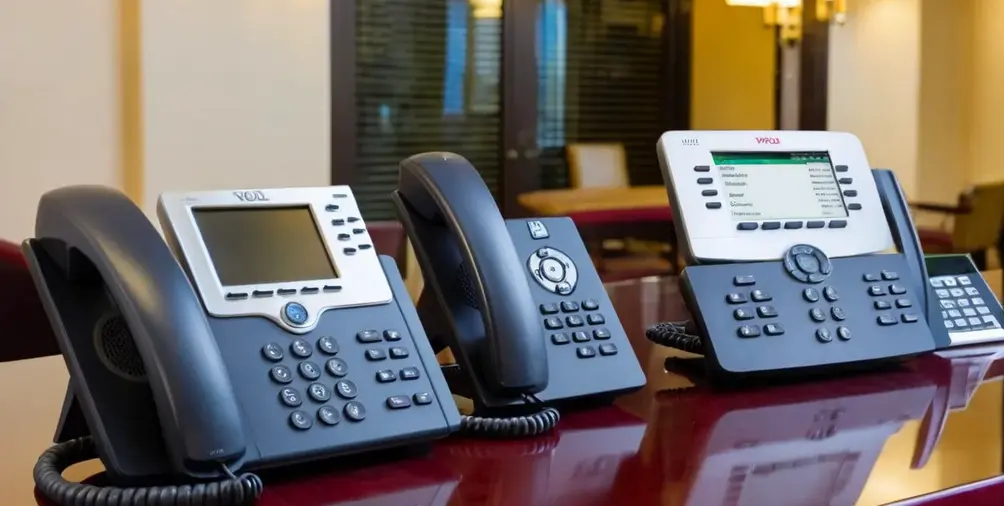Hotel phone systems are mission-critical technology that enable smooth guest communication and impact the guest experience. With options like VoIP and digital systems available, hotel owners face a choice when upgrading or selecting a new hotel phone network.
Jethotelsolutions examines the key differences between VoIP and digital phone systems for hotels. We’ll compare the pros and cons of each option across critical factors like cost, features, reliability and more. Read on for an in-depth look at how to select the best hotel phone system.
What Are They?
VoIP stands for Voice over Internet Protocol. It refers to phone systems that operate using the internet, rather than traditional landlines, to transmit calls.
With VoIP systems, calls are converted into digital data packets and sent over IP data networks. This allows calls to be made over the internet, integrated with other software, and enabled across devices.
Digital phone systems are a modernized version of traditional landline PBX systems with upgraded hardware. While they operate over standard telephone lines, the equipment converts calls into digital signals for clearer quality and to enable features.
| Features | VoIP | Digital Phone |
|---|---|---|
| Call Transmission | Calls are converted into digital data packets and transmitted over IP data networks | Calls are converted into digital signals for clearer quality and features, transmitted over traditional telephone lines |
| System Components |
<li🌐 Software for system management (often cloud-based)
|
|
| Key Benefits |
|
|
| Key Features |
|
|
| Hardware |
|
|
VoIP vs Digital: Reliability & Security
Two of the top concerns with any hotel phone system are reliability and call security:
Reliability:
Digital phones operate over dedicated phone lines so reliability is very high. There is no dependence on internet uptime. VoIP call reliability depends on consistent, quality internet connections. Power outages or network issues can disrupt service.
Security:
Digital systems have dedicated lines for each call, so privacy is inherently strong. VoIP calls share network bandwidth so additional encryption is recommended for call security.Vl
VoIP vs Digital: Cost & Maintenance
When evaluating hotel phone systems, cost considerations like initial purchase price, ongoing fees, and maintenance responsibilities also come into play.
Cost:
VoIP systems have higher upfront costs for specialized VoIP hardware and potential network upgrades. But they can save substantially on call plans through internet usage. Digital systems have lower startup costs but recurring fees for traditional phone lines.
Maintenance:
VoIP systems are maintained through remote software management. Changes and updates can be handled from off-site. Digital systems typically require on-premise maintenance from telephony technicians when issues occur or changes are needed. This adds time and costs for site visits.
VoIP vs Digital: Which is Right for Your Hotel?
 With a detailed look at their respective features, capabilities and costs, is VoIP or an on-premise digital system better for your hotel environment? Here are some key factors to consider:
With a detailed look at their respective features, capabilities and costs, is VoIP or an on-premise digital system better for your hotel environment? Here are some key factors to consider:
Consider VoIP systems if you:
Have strong internet infrastructure with reliable uptime or failover
Want to enable mobility, apps, integrated software and future smart features
Need to minimize long distance calling costs
Prefer centralized, web-based system administration
Consider digital PBX systems if you:
Require highly reliable service with minimal downtime risks
Currently have reliable analog phone infrastructure in place
Have capable on-site telephony maintenance staff
Handle mostly local calls vs. long distance traffic
The choice depends heavily on your hotel’s current infrastructure, capabilities and budget versus plans for future innovation and capabilities. Installation costs also vary greatly based on hotel size and complexity. Be sure to get detailed quotes for both options.
For smaller hotels, VoIP solutions often provide better value and features than outdated legacy phone systems. But larger properties with complex infrastructure in place may prefer enhancing existing digital PBX equipment. The needs of your specific property should drive the decision between implementing VoIP or staying with a digital phone system.
